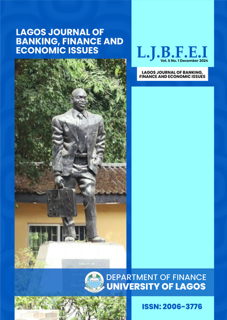THE MODE AND GROWTH IMPACT OF REVENUE ALLOCATION IN NIGERIA.
Abstract
Decades after independence and the practice of federalism in Nigeria, the country is still grappling with the challenge of having a revenue sharing formula that will be acceptable to all the tiers of government. The study examined the effect of revenue allocation to federal government on economic growth in Nigeria. The study collected quarterly time series data from secondary source within the period 2001Q1 to 2021Q4 from Central Bank of Nigeria (CBN) annual statistical bulletin. The independent variable for the study is revenue allocation to federal government (RAFG) and the dependent variable is economic growth proxied by gross domestic product (GDP). Employing Eviews 10, the study uses error correction model (ECM) and autoregressive distributed lag (ARDL) Co-integration tests for robust policy recommendations. Findings revealed that the revenue allocation to federal government exerts positive but insignificant effect on economic growth in Nigeria within the period under study. The study recommends that stern policy measures that will checkmate corruption and monitoring of application of public funds should be put in place. Policies like introduction of e-government in almost all government services will promote transparency. Code of ethics should be clearly developed to prevent ambiguity, increase decision making and work processes between private and public sectors.

